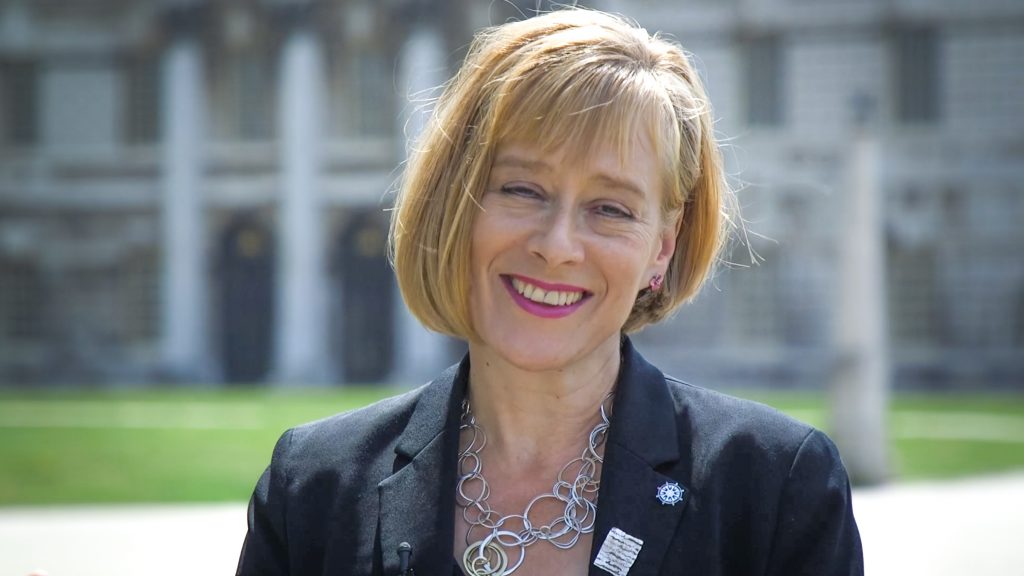It requires a particular model of university to create the kind of everyday impact that cultivates resilient, sustainable and climate-conscious communities. Creating world-class research that accurately identifies the issues of climate change is excellent and needed – but connecting the dots between this and working in partnership with industry, businesses and communities is where the real work begins.
This is the kind of approach being adopted by Alliance universities; we haven’t just been talking about it: we’ve been doing it. For example, at my own institution, the University of Greenwich, one of our researchers, Professor Patricia Harvey, has been developing research on microalgae, which has revealed its sustainable properties – as a highly regenerative, super healthy food source that absorbs more carbon dioxide than it produces.
Anglia Ruskin University has been conducting research to understand which skills will be needed by local organisations in the East of England to support a transition to a low-carbon economy post-Covid-19.
The University of South Wales has joined a partnership with Welsh organisations across multiple sectors, including energy, infrastructure, academia and the public sector, to help the region reach net zero by 2050.
Leeds Beckett University has been looking at old homes in the Leeds city region, understanding the benefits of retrofitting them to become more energy efficient to improve energy poverty, reduce costs and become more eco-friendly.

Generating practical solutions which are tailor-made for each region of the country, not just those which can afford them, will be a key factor in tackling the environmental crisis.
It’s these kinds of partnerships with the locale, a drive to work with local industries, businesses and councils, rather than in isolation from them, that will truly drive the impactful solutions needed to tackle climate change. University Alliance members have been creating tangible, real-world solutions like these for decades.
From helping businesses to conduct themselves sustainably to creating clean energy solutions from sun and waste; from advising on European energy policy to developing the sustainable foods of the future; from constructing liveable housing out of waste products to retrofitting existing houses to make them more efficient. Alliance universities have been and are Powering Action on Climate Change.
It’s important for the government to recognise and fund excellent research wherever it’s found, and address regional imbalances in R&D funding – to support our universities to continue creating excellent climate research, no matter their geography
With this in mind, it was good news to hear the Department for Education’s announcement on 4th November 2021 of their Sustainability and Climate Change strategy. Efforts are clearly being made to instil sustainability and climate change action at the heart of education. This is an agenda that we support, particularly at the University of Greenwich. Our Climate Change degree teaches our students how to protect the planet and why this is so important.
I sincerely hope this new strategy can be a first step towards impactful dialogue with the government. If we are to reach net zero in the UK, we need this dialogue, along with further collaboration between our professional and technical universities and government, to emphasise the importance of universities in helping our country reach its climate action ambitions.
Specifically, it’s important for the government to recognise and fund excellent research wherever it’s found, and address regional imbalances in R&D funding – to support our universities to continue creating excellent climate research, no matter their geography. Alongside this funding, the upcoming skills and innovation agenda from DfE needs to work hand-in-glove with businesses to make sure they are getting the graduates and technologies needed to realise a net-zero future. Alliance universities already have a robust infrastructure of partners in business, where we are helping them to adapt and develop green products and services – but investment needs to be scaled up in order to stimulate greater regional university-business partnerships.
Ultimately, bringing up climate-conscious young people is absolutely crucial – but the government should also continue to support the research and innovation that has been going on for decades to mitigate the effects of climate change throughout the UK.
Failing to invest in climate change research could have dire consequences. Researchers in Alliance universities are working hard to support developing climate adaptation and mitigation – but this must continue and be strengthened to maintain the standard of work created, otherwise, things will just go backwards.
There is so much for the UK to be proud of, particularly where universities have worked with local industry, businesses and communities to find practical, tangible solutions to the causes and effects of climate change. But, as with most things, there are always areas for improvement and our work could be strengthened by greater dialogue and collaboration between government and universities so that together we can forge an even stronger path towards the UK’s net-zero ambitions.




